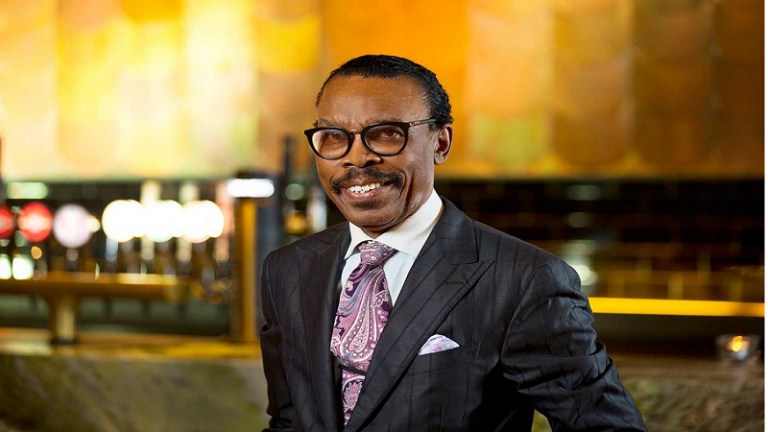
The International Monetary Fund (IMF) has called on Nigeria to exercise greater fiscal discipline, urging the Tinubu-led government to optimize public expenditure amid growing concerns about inefficient resource allocation.
However, some of the country’s top economists say this is not the time to be overly frugal—warning that cutting back too hard could further strain a fragile economy.
The IMF’s warning came during the 2025 IMF/World Bank Spring Meetings in Washington, D.C., where Davide Furceri, Division Chief in the Fiscal Affairs Department, commended Nigeria’s difficult fiscal reforms, such as subsidy removal, but stressed that these must be followed by “continued discipline in government expenditure.”
Register for Tekedia Mini-MBA edition 19 (Feb 9 – May 2, 2026).
Register for Tekedia AI in Business Masterclass.
Join Tekedia Capital Syndicate and co-invest in great global startups.
Register for Tekedia AI Lab.
“We understand that many countries, including Nigeria, face pressing spending needs. But spending must be done wisely, which means stronger prioritization and greater efficiency in resource allocation,” Furceri said.
This statement, while appearing prudent, has sparked a wave of dissent among local economists, many of whom argue that Nigeria’s economic condition calls for a more pragmatic, not restrictive, approach.
One of the strongest responses came from Bismarck Rewane, Chief Executive Officer of Financial Derivatives Company, who, while acknowledging the importance of managing spending, warned against drastic cuts that could cripple already stressed sectors. Speaking on Channels Television’s Business Morning, Rewane noted that cutting government spending is not the same as optimizing it.
“The IMF is advising that we optimize expenditure, as there are numerous leakages at both state and federal levels, which act as a negative investment multiplier,” he said. “But to ask us to cut our expenditure at a time when we need to invest more is like asking a man with an ulcer to go on a fasting mission.”
Rewane acknowledged the necessity of reforms introduced by President Bola Tinubu, including fuel subsidy removal and currency realignment, but insisted that these moves alone are insufficient.
“These reforms are necessary, but not sufficient. We must stop looking backwards. What was appropriate in 2023 may not suffice for 2025,” he said, adding that insecurity, particularly in oil-producing regions, continues to undermine revenue growth and economic recovery.
The IMF’s recommendation also comes against the backdrop of heavy criticism over what many Nigerians see as excessive and tone-deaf government spending. A 2025 budget analysis revealed that Tinubu plans to spend N7 billion on travel, N6.1 billion internationally, and N873 million locally, while Vice President Kashim Shettima will spend an additional N1.731 billion on his own travel expenses. In 2024 alone, data from the Open Treasury Portal showed that the Tinubu presidency spent N83 billion on travel.
Despite the staggering figures, Nigeria’s Minister of Foreign Affairs, Ambassador Yusuf Maitama Tuggar, defended the expenses, arguing on a Channels TV program that the president should be “traveling even more.” Tuggar pointed to a $2 million livestock investment deal allegedly secured during a visit to Brazil, portraying it as a worthwhile outcome.
But experts like Rewane suggest that the issue is not about the volume of travel but whether spending is yielding measurable, wide-scale economic impact.
“We must optimize expenditure, not spend like drunken sailors,” Rewane warned.
He cautioned that frugality in key areas like infrastructure, security, and inflation control would be counterproductive. Instead, he proposed a balanced approach: seal the leakages, enhance efficiency, and ensure that government outlays generate real value.
On inflation, Rewane challenged the IMF’s projections of 30% in 2025 and 37% in 2026, predicting a more moderate 25–27% increase. He argued that the Central Bank of Nigeria (CBN) might be forced to raise interest rates again to control liquidity, given that inflationary pressure remains persistent.
He also criticized recent decisions by the Debt Management Office (DMO), particularly the reduction of bond issuance from N1.8 trillion in Q1 to N1.2 trillion in Q2, a move he described as counterproductive.
“Increased bond issuance is key to mopping up liquidity and controlling inflation. This is one of the painful choices we make to control inflation,” he said.
Rewane also drew attention to ongoing concerns over Nigeria’s undervalued crude oil exports.
“We sell for 70 cents, while our neighbors get $1.20. How long can this go on?” he asked, warning that continued underpricing could worsen the country’s revenue crisis.
He praised the Dangote Refinery’s role in easing fuel prices but warned that global dynamics could soon reverse those gains. According to him, a potential output increase by the Organization of Petroleum Exporting Countries (OPEC) could further depress crude prices, compounding Nigeria’s already strained revenue outlook.
Rewane also commented on broader global developments, noting that U.S. President Donald Trump’s proposed tariff reductions on China might offer temporary relief. However, he maintained that uncertainty will persist.
“Yes, a recession may come, but it will be mild, not deep,” he predicted.
Looking forward, Rewane emphasized the urgency of closing Nigeria’s fiscal gap through smarter borrowing, reduced leakages, and targeted fiscal consolidation. He stressed that the solution to Nigeria’s economic woes lies in thoughtful action—not blind austerity.
“These are serious times, and we must respond with serious adjustments,” he said. “There is no one-size-fits-all approach. What Nigeria needs is discipline, yes—but also courage to invest, restructure, and grow.”



